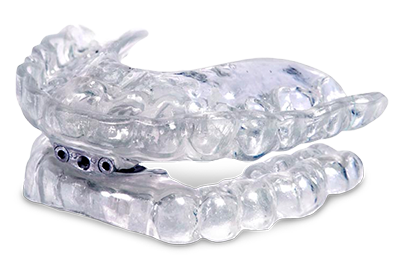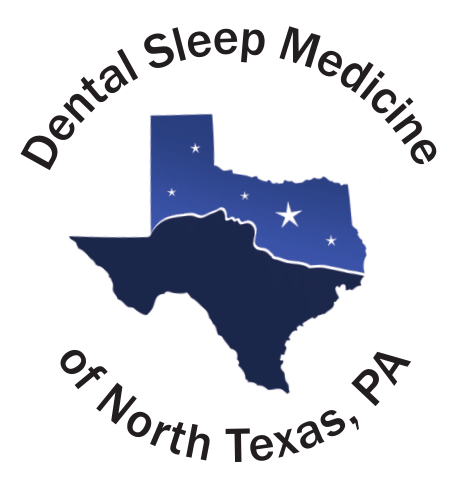
Navigating Sleep Apnea’s Effects on Your Mental Health
Are you constantly feeling fatigued despite spending what feels like an adequate time in bed each night? You might be dealing with sleep apnea, a condition that disrupts breathing during sleep and has significant implications for mental health.
Recognizing the importance of addressing both sleep apnea and mental health concerns, Dr. Scott Clinton of Dental Sleep Medicine of North Texas specializes in minimally invasive sleep apnea therapy. If you’re in South Dallas and struggling with sleep issues, call our Waxahachie office at (972) 737-5337 to schedule an appointment.
The Importance of Sleep for Your Mental Health
Getting enough sleep is crucial for your mental well-being and daily functioning. Experts suggest aiming for about eight hours of sleep each night, taking into account factors like age and lifestyle. During sleep, your body repairs itself, and your brain processes information to prepare for the day ahead.
However, sleep apnea disrupts this important process by causing frequent breathing interruptions while you sleep. These interruptions happen many times per hour, preventing your body from getting the rest it needs. If sleep apnea goes untreated, it can have long-lasting impacts on both your physical health and mental well-being.


The Need for REM Sleep
Sleep apnea disrupts the natural sleep cycle, hindering the body’s ability to enter rapid eye movement (REM) sleep. REM sleep is essential for various physiological and cognitive functions, including memory consolidation and emotional regulation. When REM sleep is compromised due to sleep apnea, it can lead to chemical imbalances in the brain, affecting overall functioning throughout the day.
During REM sleep, the brain becomes highly active, processing memories and emotions, which are often experienced as dreams. The quality of REM sleep directly impacts mental well-being, and disturbances in this stage of sleep can contribute to a range of mental health issues. Ensuring uninterrupted REM sleep is crucial for supporting overall well-being and cognitive function.
How Sleep Apnea Affects Your Mental Health
The coexistence of sleep apnea with various mental health conditions, known as comorbidity, can have profound effects on overall well-being. Sleep apnea exacerbates mental health issues in several ways:
- Depression: Individuals with depression often experience sleep disturbances, including insomnia, daytime fatigue, and mood swings, which can be exacerbated by sleep apnea.
- Anxiety & PTSD: Anxiety disorders, including PTSD in veterans, can lead to sleep problems such as insomnia and nightmares, which may worsen with the presence of sleep apnea.
- Bipolar Disorder & Schizophrenia: Patients with bipolar disorder or schizophrenia may experience daytime fatigue and sleepiness, compounded by the sedative effects of medications. Moreover, individuals with schizophrenia are more likely to have obstructive sleep apnea (OSA), increasing the severity of their condition.
With sleep apnea, your mental illness can worsen. Fortunately, Dr. Clinton can find the treatment you need for a good night’s sleep. If you believe you may be suffering from sleep apnea due to your medical condition, schedule a consultation at our Waxahachie office.


The Bidirectional Relationship
The relationship between sleep apnea and mental health is bidirectional. Sleep apnea can worsen existing mental health conditions, intensifying symptoms and reducing treatment efficacy.
- Untreated sleep apnea can hinder the effectiveness of antidepressant medications for individuals with depression.
- Mental health problems, on the other hand, can influence the severity of sleep apnea.
- Anxiety and stress can trigger sleep apnea episodes or worsen symptoms.
Mechanisms and Pathways
There are several ways that sleep apnea impacts mental health. One important factor is sleep disruption, which can worsen mental health problems. Sleep apnea disrupts the natural sleep cycle, preventing deep restorative sleep and the important rapid eye movement (REM) sleep stage.
Additionally, the brain may not get enough oxygen during sleep apnea episodes. This can impair brain function and lead to cognitive problems. Dr. Clinton explains that this lack of oxygen can also cause inflammation and disrupt the body’s metabolism, contributing to mental health disorders.


Sleep Apnea & Anxiety
Losing sleep repeatedly creates a sleep deficit, making it harder to cope with stress and potentially leading to anxiety. While there’s a clear link between sleep apnea and anxiety, it’s not always clear whether the lack of sleep is causing the anxiety or if the anxiety is causing the sleep disorder.
There may be a two-way connection. People who have anxiety may be more likely to develop sleep disorders like sleep apnea. Treating one condition may help alleviate the symptoms of the other.
Our oral appliance offers a non-medication option to help improve sleep apnea symptoms, which can help reduce anxiety. If you’re interested in learning more, please contact our Waxahachie office at (972) 737-5337, and Dr. Clinton will be happy to assist you.
Additional Ways Sleep Apnea Affects Your Brain
Difficulty in Concentrating
Not receiving enough sleep can make it difficult for your body to function normally. Untreated sleep apnea can affect your ability to concentrate on simple daily tasks. This can prevent you from completing these responsibilities and lead to higher stress.
Emotion & Memory Processing
As you sleep, your brain processes information and memory throughout the day. Once you wake up, you’ll be able to fully recall yesterday’s events with a better understanding. Not completing your sleep can affect how you experience and perceive events during the day.
When sleep apnea disrupts your sleep, it causes a chemical imbalance that makes it difficult to control your emotions. The absence of information would also make certain memories difficult to recall, causing them to resurface unexpectedly.

Your Simple Solution to Sleep Apnea
If you believe you may be suffering from sleep apnea along with other physical or mental health conditions, Dr. Clinton can help you. After undergoing a sleep study to get a proper diagnosis, you can come to our Waxahachie office for your consultation, and Dr. Clinton will find the solution for you.
At Dental Sleep Medicine, Dr. Clinton offers customized oral appliances to treat sleep apnea. With the oral appliance, you’ll receive a discreet, comfortable, and quiet solution to treat your sleep apnea and alleviate your symptoms.
Frequently Asked Questions
What is the connection between sleep and mental health?
Poor sleep can significantly worsen the symptoms of many mental health issues. Sleeping problems can be secondary to mental health disorders such as depression and anxiety. In addition to affecting sleep itself, many medical and mental conditions can be worsened by sleep-related problems, causing further complications.
Can sleep apnea affect me physically?
Yes, sleep apnea can have physical effects in addition to its impact on mental health. Untreated sleep apnea may lead to weight gain, cardiovascular issues, diabetes, a weakened immune system, high blood pressure, and impaired growth and development.
How can I regain quality sleep with sleep apnea?
To regain quality sleep with sleep apnea, it’s essential to seek professional help from a sleep specialist. Treatment options may include lifestyle changes, oral appliances, continuous positive airway pressure (CPAP) therapy, or other interventions tailored to your specific needs.
Will my insurance cover my sleep apnea treatment?
Most insurance providers should cover a portion of the treatment cost. We encourage you to speak to your insurance provider to learn more about your coverage plan and benefits. You can also ask if the dental office provides in-house financing plans.
Regain Your Quality Sleep
Receiving sleep apnea treatment is not only a great step toward better quality sleep, but it can also help control and alleviate the symptoms of mental health issues. To schedule a consultation with Dr. Clinton, call our Waxahachie office at (972) 737-5337 today.
You can also fill out our online contact form below, and a staff member will assist you. We proudly serve patients in the South Dallas area, such as Red Oak, Midlothian, Maypearl, and Ennis, TX.
